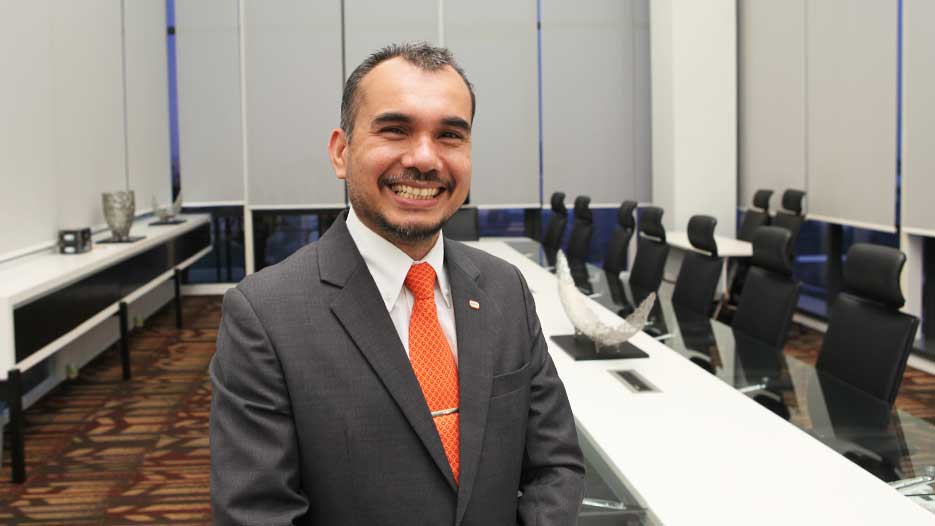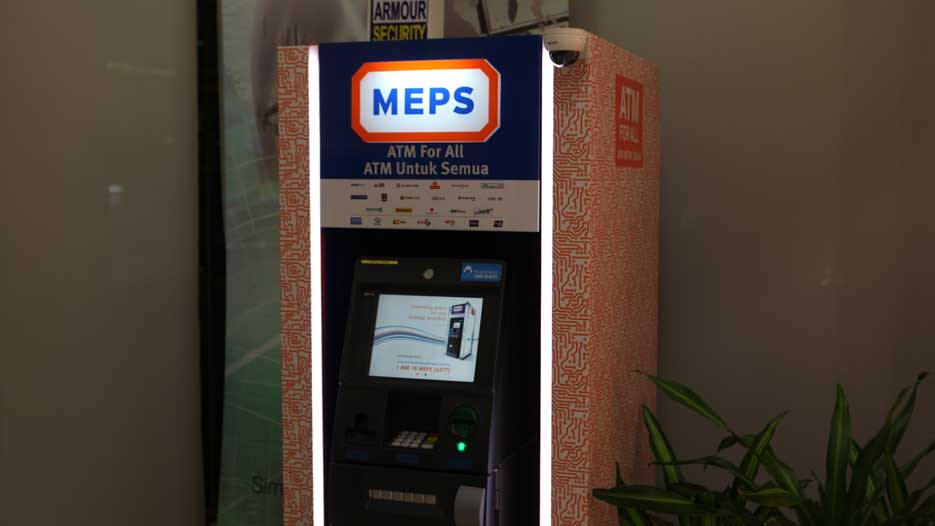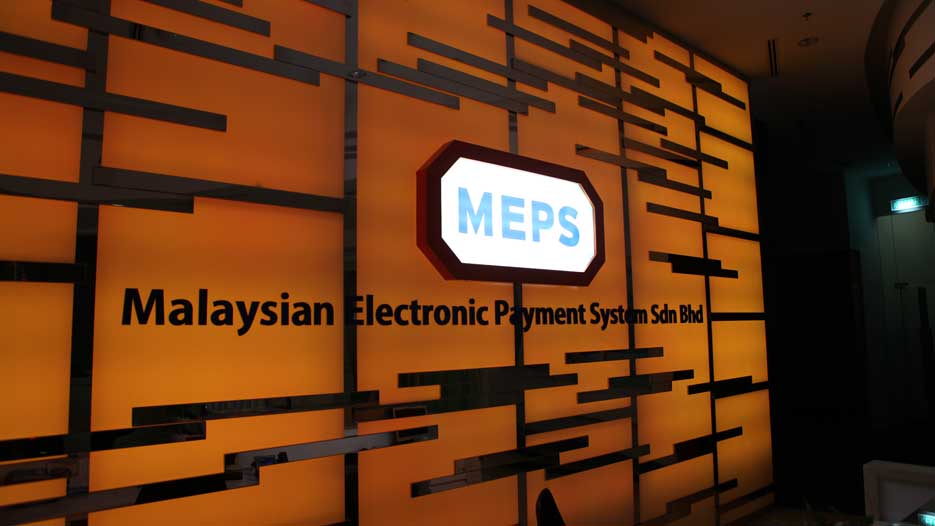Financial Services: Malaysia’s Strategy to Become Financial Hub
Malaysia is a regional financial hub and has well sophisticated financial services industry. View more information about Malaysia being the financial hub in the South East Asia, outlook for the financial services industry and more.
Interview with Zulkanian Kassim, Group Managing Director of MEPS

How do you see Malaysia and Kuala Lumpur in particular as the regional financial hub? What is the structure and sophistication of the financial services industry here?
The national initiative that we have so far has been very aggressive, especially if you look at it from our central bank´s point of view, Bank Negara Malaysia, which came out with a financial sector blueprint in 2011. I think that today the AEC, the Asian Economic Community is emphasising that seamless cross border transactions across the Asian countries be key.
Now that the chair of the AEC in 2015 will be from Malaysia, we shall certainly be pushing Malaysia further as well as being the financial hub for this region. Additionally the prime minister has been at the WIEF in Dubai specifically talking about how Islamic financial services can be used as a model for other countries.
What is the outlook for the financial services industry? In your opinion, is it going to become more sophisticated? Is the government going to implement new things? Is it going to grow significantly?
Yes, definitely. Specifically in my area, which is related to payments, one of the key agendas that we have from the regulators at Bank Negara Malaysia is to push for e-payments. This will push us to the next level. Today, I think the costs of our financial services are rather high in terms of the costs of printing cash, managing cheques etc. these aspects are actually very costly to the country so with this initiative from Bank Negara to push for e-payments we are looking at a huge impact, even to our GDP.
I think Bank Negara is tracking all of the financial industry closely to make sure that we can be a cheque-less society by 2020. We should have a certain target number for orders on e-payment related transactions. I think therefore that the regulator is actually very aggressive and is pushing us for e-payments.

Regarding your strategy, what are your priorities for 2015 and beyond?
The key thing that we have to do at MEPS is of course to align ourselves to the national payment agenda. One of the key areas is to push for the e-payments. Last year we introduced our own ATM, which we call MEPS ATM. So, how do we assess the national payment agenda concerning MEPS ATM? By introducing all of the e-payments services on the ATM itself. Therefore, we know that ATMs deal with the dispensing of cash but the key thing is that with the ATM that we have, we are looking at having more and more e-payment services.
Today we have interbank fund transfers, credit card repayments, and loan repayments in these services and coming soon we are going to offer more services like top ups for our prepaid card, store card payments, bill payments and so on. We want to have sufficient terminals in the country so we may look into having kiosks and other kinds of terminals for the public to have access to this.
Besides that, something else that is key on our agenda today, together with Bank Negara Malaysia, is upgrading our chip based system so that we can have chip debit cards to new specifications to be standard with EMV chip card technology. We were one of the first of the Asian countries to introduce chip-based cards in 2001. Today, we need to upgrade to ensure sustainability as well as security. In addition, with the new standards we can actually do more using these cards, such as have a contact list and have NFC cards. This agenda is driven by us but of course with support from Bank Negara as well as our partners MyClear. We will make sure that this is going to happen and we target to have this up and running in January 2015.
What are you doing to ensure that the money you operate with is safe?
Security is always key for us. We make sure we secure our infrastructure. We actually look at it from the physical as well as logical point of view, meaning that any access to the system with IDs and passwords will be controlled and any physical access to offices and data centres will be controlled.
We are also certified under the ISMS as well as being certified under QMS under the Islamic perspective. We look at security in terms of physical, logical and spiritual security. We want to make sure that the people managing the security aspects also have good intentions and have the right mind set in managing all of this infrastructure.

How would you define your major challenges?
The major challenge that we have today is that previously we had other e-payment services at MEPS which have been taken over by the central bank in view of pushing for e-payments driven directly from the central bank. With that, our new services will be limited to a certain area. However, I think this year we will start our plan to get back on track.
We do not have a debit scheme yet for example; these services are to be provided by MyClear. MyClear owns this scheme, but at our end we will complement the service to ensure the public benefit from it.
Tell us about yourself. What are some of your core values that you would like to implement within the organization?
Customer satisfaction is one of our main core values of course. We need to ensure that the human capital we have today is always equipped with the necessary knowledge. We encourage the team to upgrade their skills and their competencies at all times. In this way, we should be able to provide the best values and services to the customer.
How do you approach training initiatives? How challenging is it in the local market to find the right people?
I think the key thing in terms of skills is that we have to develop these people through training courses. The service that we provide is a niche service. We cannot find the people with the right skills just anywhere. There are certain key areas that we look at; we know that having a system that runs 24/7 means we need high, dual availability. There are not many companies like this, of course, the big corporates are like this and so we are competing with the big brands for these kinds of workers. We also offer spiritual support to our employees to make sure that they are rewarded accordingly and that they want to stay with us.
We also want to train our workers in soft skills. We have a specific program that we arrange with our local training provider for soft skills and leadership skills. We have done quite a lot to make sure there is a sense of ownership, urgency and teamwork always present. I think we need this to ensure that when it comes to interbank transactions throughout the country there are no hiccups or shortfalls.
I imagine it is extremely difficult to keep everything running smoothly.
Yes, it is not that simple because any impact to the service that we have will affect all of the banks. The key thing is that the staff needs to have the right skills and knowledge and we need to ensure the correct implementation of the technology that we have. We need to have redundancy equipment to eliminate every single point of failure.
In our case our power station, UPS, power supply to the machines etc. is all dual. The network equipment also has two firewalls etc. to make sure that if one fails the other can continue to provide the service. With our wireless ATM services, we also have two service providers at work so that we can always ensure service. We also ensure security elements before we introduce any new services; we go through a proper security process.
Are you expanding internationally?
In terms of our services, we are not expanding internationally. However, we do work with switch partners in other countries. Today, MEPS is connected to Indonesia, Singapore, Thailand, Vietnam, South Korea and China. We are also looking forward to having connectivity to the Middle East. We did put out a proposal to connect to Saudi and Bahrain. We are engaging with them regarding these connections.
A lot of the nation performs Hajj and Umrah in Saudi so with the connectivity we can allow our locals to withdraw their money overseas directly from their accounts. In addition, I think that if we have connectivity with this country it will benefit both sides. We do get many tourists from the Middle East come to Malaysia and so they will benefit from being able to withdraw from local ATMs directly debiting their accounts in their own country.
You mentioned technology and that you have double power for everything. Are you using foreign consultants to advise you?
I think having double power is not really rocket science. The important thing is to have the right architecture. Internally we have an IT security and architecture committee and we have an IT strategy. They look at all aspects of possible failures and ensure that failure does not happen.
Of course, we also rely on the architecture of the application provided from our service providers. For example, today our core switch is riding on base 24, a product from ECI, which is a premium product, and service that can deal with a huge volume of transactions. In addition, today we are using a NS2, which is a Hewlett Packard fault tolerant server.
Finally, you have just started your new 5-year strategy in 2014, how do you imagine the company once everything has been accomplished?
Even though we are a financial services provider to our banking industry, we are also an IT company. You know that IT will evolve very quickly. New technology is being introduced almost every month. We have a five-year plan but the key area that we are focusing on first is the three-year program and for the fourth and fifth year, we shall be focusing on exploratory assessments.
The key areas that we are looking at are the IT infrastructures and introducing new services. We are going to upgrade our chip base this year as I mentioned earlier from the PMPC system to the new EMV chip, which is on the MCCS Malaysian specification. This new chip card will allow us to offer more services and perhaps become a card management provider to the banks, particularly the smaller banks and perhaps even to the corporate outlets who want to issue a card. With the functions that will be available on the new specification cards we should be able to expand further.
On top of that last year we have introduced the MEPS ATM, this allows us to expand further with ATM services especially e-payments. We are also looking at how we can accelerate the transactions that we have on the ATMs. Of course, we need to generate revenue to recover the costs of operating these ATMs. Operating ATMs is very costly; you have to have the cash in the ATM, to engage a provider to manage the ATM, to pay for the maintenance of the ATM and you need the network to connect to the ATM.
Thus, it all becomes very costly; we have to ensure that we have sufficient revenue to cover the expenses. We shall be expanding with advertising on the ATM, so the cabin or the enclosure can be used for advertising as well as the data screen. We are going to introduce new services for example an international scheme of cash air miles on credit cards as well as providing a service where customers are given an option to withdraw their money locally but debiting their account in their own currency with direct currency commission. This shall be introduced early next year.
We are also looking at how we can expand our corporate structure to ensure that we are able to provide not only our services to the bank but to serve the public directly. I think our organisation needs to be directed towards that. Customer management is very important and so our contact centre is a priority. Managing the ATM availability is also of importance. As we see ourselves as key service providers when it comes to ATMs, we want to make sure that we have all of the necessary tools and expertise to advise the banks regarding ATM operations.
We are also going to explore whether we should go into transit cards but these are preliminary ideas that will be discussed.